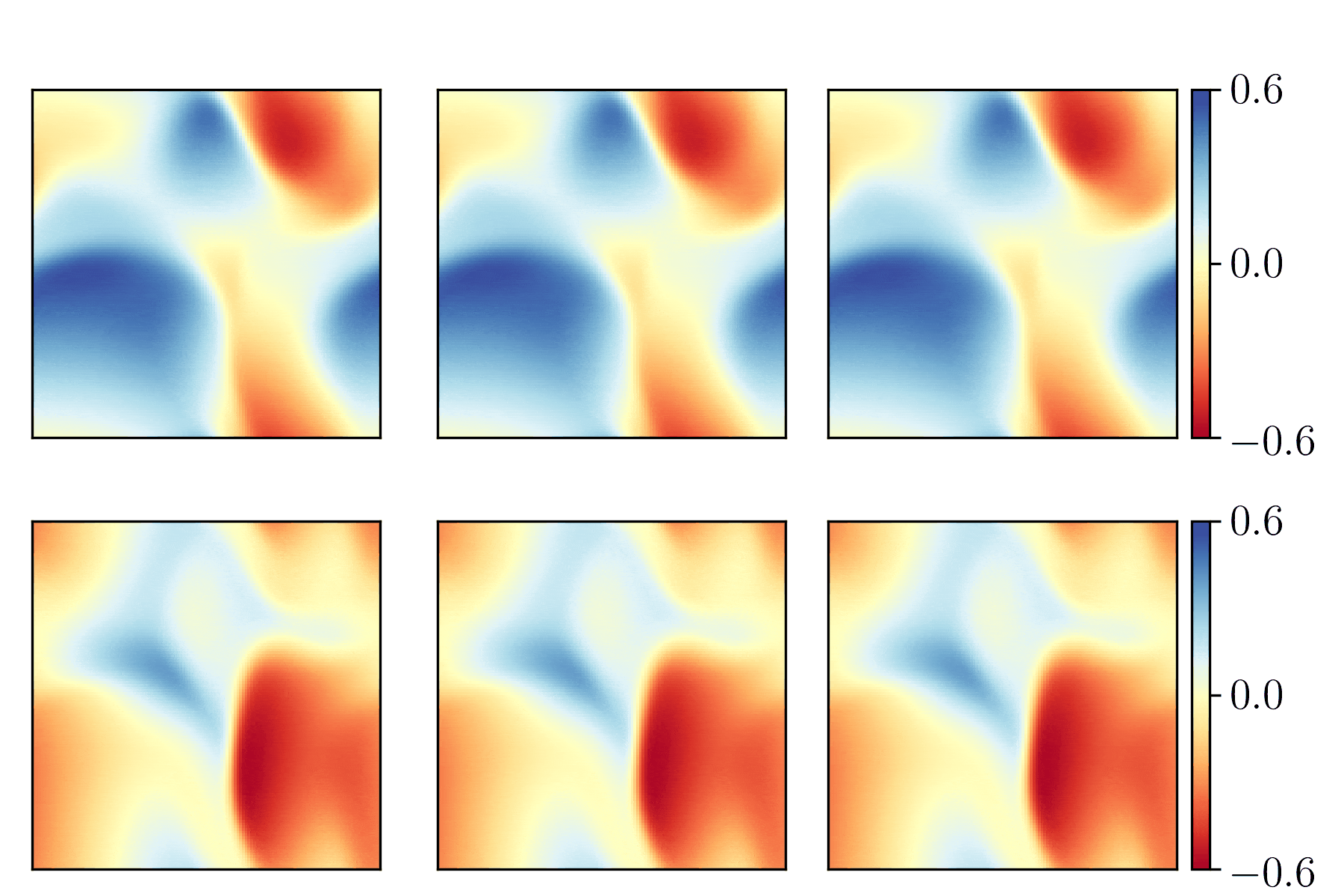FInite volume Neural Network (FINN)
This repository contains the PyTorch code for models, training, and testing, and Python code for data generation to conduct the experiments as reported in the work Composing Partial Differential Equations with Physics-Aware Neural Networks
If you find this repository helpful, please cite our work:
@article{karlbauer2021composing,
author = {Karlbauer, Matthias and Praditia, Timothy and Otte, Sebastian and Oladyshkin, Sergey and Nowak, Wolfgang and Butz, Martin V},
title = {Composing Partial Differential Equations with Physics-Aware Neural Networks},
journal = {arXiv preprint arXiv:2111.11798},
year = {2021},
}
Dependencies
We recommend setting up an (e.g. conda) environment with python 3.7 (i.e. conda create -n finn python=3.7). The required packages for data generation and model evaluation are
conda install -c anaconda numpy scipyconda install -c pytorch pytorch==1.9.0conda install -c jmcmurray jsonconda install -c conda-forge matplotlib torchdiffeq jsmin
Models & Experiments
The code of the different pure machine learning models (TCN, ConvLSTM, DISTANA) and physics-aware models (PINN, PhyDNet, FINN) can be found in the models directory.
Each model directory contains a config.json file to specify model parameters, data, etc. Please modify the sections in the respective config.json files as detailed below (further information about data and model architectures is reported in the according data sections of the paper's appendices):
"training": {
"t_stop": 150 // burger and allen-cahn 150, diff-sorp 400, diff-react 70
},
"validation": {
"t_start": 150, // burger and allen-cahn 150, diff-sorp 400, diff-react 70
"t_stop": 200 // burger and allen-cahn 200, diff-sorp 500, diff-react 100
},
"data": {
"type": "burger", // "burger", "diffusion_sorption", "diffusion_reaction", "allen_cahn"
"name": "data_ext", // "data_train", "data_ext", "data_test"
}
"model": {
"name": "burger" // "burger", "diff-sorp", "diff-react", "allen-cahn"
"field_size": [49], // burger and allen-cahn [49], diff-sorp [26], fhn [49, 49]
... other settings to be specified according to the model architectures section in the paper's appendix
}
The actual models can be trained and tested by calling the according python train.py or python test.py scripts. Alternatively, python experiment.py can be used to either train or test n models (please consider the settings in the experiment.py script).
Data generation
The Python scripts to generate the burger, diffusion-sorption, diffusion-reaction, and allen-cahn data can be found in the data directory.
In each of the burger, diffusion_sorption, diffusion_reaction, and allen-cahn directories, a data_generation.py and simulator.py script can be found. The former is used to generate train, extrapolation (ext), or test data. For details about the according data generation settings of each dataset, please refer to the corresponding data sections in the paper's appendices.



